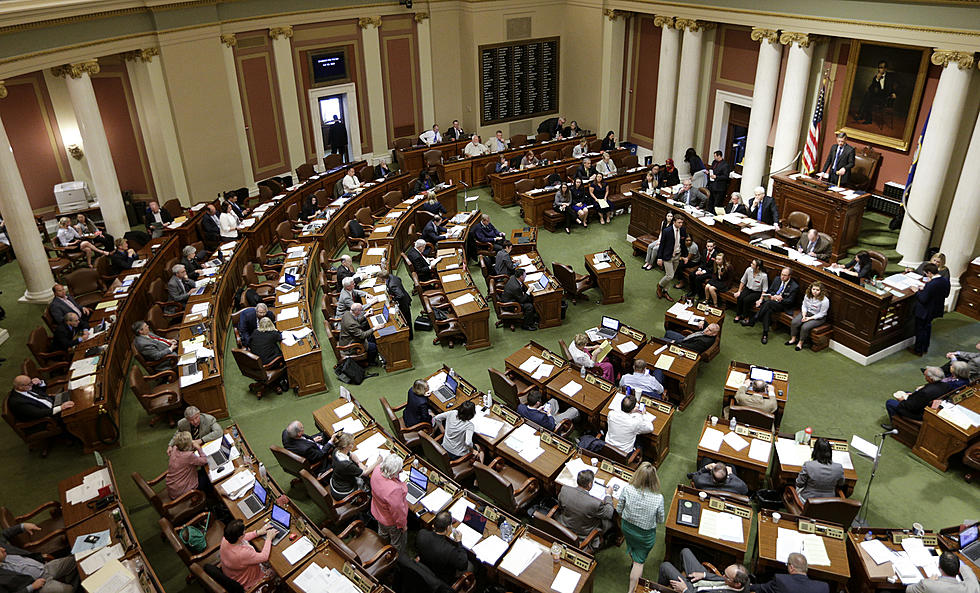
Minnesota Legislature Wraps Up Quick Special Session
ST. PAUL, Minn. (AP) — The Minnesota Legislature ended its special session Saturday after approving a $48 billion budget to fund state government for the next two years.
The House and Senate pulled an all-nighter to pass their budget bills and adjourned around 7 a.m., finishing the one-day gathering close to the deadline set by Democratic Gov. Tim Walz and legislative leaders. The House Republican minority did not carry out its threat use procedural roadblocks to drag out the proceedings until Sunday.
Democrats proclaimed the special session and the nearly five-month regular session that preceded it a success, given the difficulties of resolving fundamental differences on taxes, spending and policy between the Democratic-controlled House and the Senate's Republican majority. The compromise budget will spend about 6% more than the current budget, which expires at the end of June.
"Under divided government, this was a bronze medal," House Majority Ryan Winkler said as most of his fellow legislators headed for home. "It might not have been a silver or a gold medal, but we managed to make it on the medal platform."
House Speaker Melissa Hortman said she and her fellow Democrats didn't get everything they wanted but they secured new money for pre-K through 12th grade and higher education. They also preserved funding for health care programs for 1.1 million Minnesotans by preventing a tax on health care providers from expiring as scheduled at year's end.
"Minnesota is showing the rest of the nation that Republicans and Democrats can still find compromise and work together to get things done," Walz said in a statement.
Republicans counted some successes, too. They blocked Walz's proposals tax and fee hikes, including a 20 cent per gallon increase in the state's gas tax. They won a modest but permanent income tax cut for middle class Minnesotans and stymied Democratic gun control proposals.
"We held the line on raising new taxes and kept spending focused on priorities," Republican Senate Majority Leader Paul Gazelka said in a statement.
Gazelka also cited measures to reduce the growth in health and human services costs. And he pointed to bipartisan legislation that will require motorists to use hands-free devices to phone while driving, try to fix the state's balky motor vehicle registration system, provide new protections for senior citizens in assisted living and care facilities, and make drugmakers help pay for the costs of the opioid crisis.
House Minority Leader Kurt Daudt remained unhappy. The big decisions to resolve differences between the House Democratic and Senate Republican budget bills were mostly made behind closed doors by Walz, Hortman and Gazelka.
The 649-page final health and human services bill, which was one of the largest pieces of the state budget, wasn't posted until 5 p.m. Friday, giving lawmakers little time to study it and discern which of many controversial policy proposals had been discarded to reach a deal.
Plans for a $500 million public works borrowing package known as a bonding bill that was part of the overall agreement that Walz, Hortman and Gazelka announced last Sunday never came together amid partisan disagreements.
"We need to figure out how to take the power away from three people in a tribunal making all the decisions and give it back to the elected representatives," Daudt told reporters.
Daudt went into the special session threatening to withhold Republican votes needed to suspend the normal procedural rules so that they could pass all the budget bills in 24 hours, instead of the usual three-day process.
In return for his cooperation, Daudt said he got some concessions on the House's committee structure and procedures that he said should make the chamber run better and provide more transparency in the 2020 session, which starts Feb. 11.
More From KROC-AM









